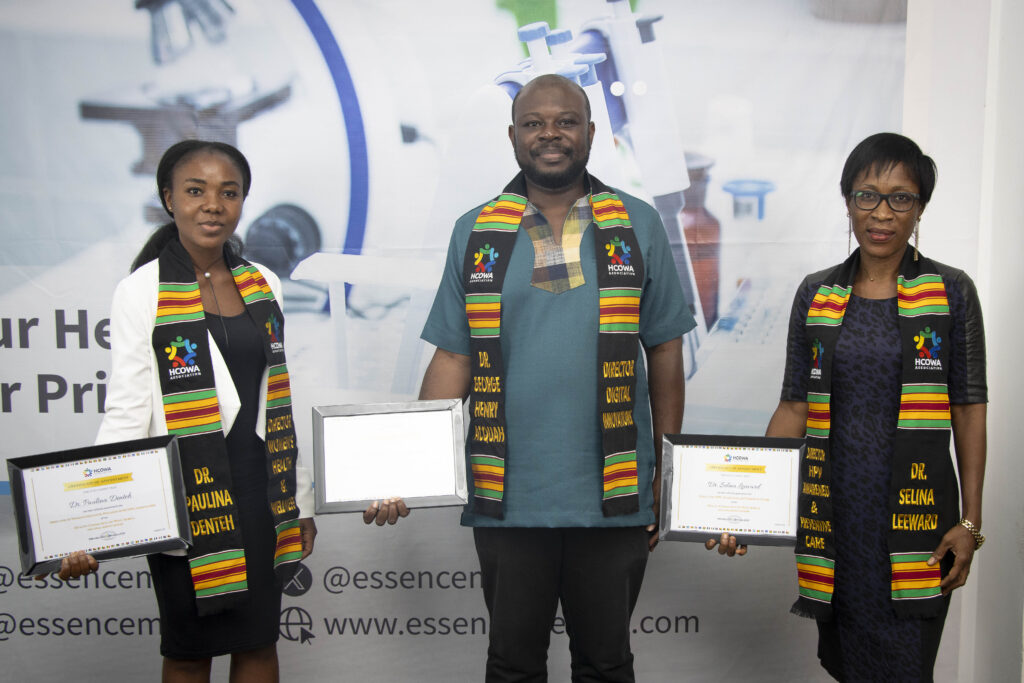The healthcare sector in West Africa is on the brink of a digital revolution with the adoption of Artificial Intelligence (AI) to enhance diagnosis and treatment.
On February 21, 2025, the Health Community of West Africa Association (HCOWAA) hosted its second seminar under the theme “Advancing Diagnosis and Treatment: Building a Framework for Healthcare Transformation.”
The event emphasized structured implementation, regulatory alignment, and international collaboration as the cornerstones of the successful integration of new technologies.
Central to the discussions was the HCOWA System Framework, a strategic roadmap designed to guide the adoption of advanced tools across public and private healthcare facilities. The framework focuses on integrating these tools into diagnostics, patient care, and hospital management to improve efficiency, accuracy, and accessibility.
The various speeches defined an approach to integrating AI in diagnostics, patient care, and hospital management to improve efficiency and accuracy.
To ensure a smooth transition, regulatory and policy recommendations were highlighted. Experts stressed the need for compliance with Health Facilities Regulatory Agency (HeFRA) and Food and Drugs Authority (FDA) standards to uphold patient safety and healthcare ethics. These measures will provide a solid legal and operational foundation for AI-driven healthcare solutions. A significant milestone of the seminar was the emphasis on strengthened international collaborations. Partnerships with leading healthcare institutions in China and across West Africa will foster knowledge exchange and technological advancements to enhance medical services in the region.

In recognition of their contributions to healthcare integration, some individuals were appointed to key roles, including Dr. Paulina Denteh (Director of Women’s Health & Wellness), Dr. George Henry Acquah (Director of Public Health and Policy), and Dr. Selina Leward (Director, HPV Awareness and Preventive Care).
The seminar concluded with a strategic plan for the adoption of advanced technologies:
- Consolidate seminar outcomes into an official document for stakeholder reference followed by an extensive review and feedback process.
- Engage policymakers, medical institutions, and technology developers to assess the findings and ensure a well-rounded approach to AI implementation.
- Align the framework with HeFRA and FDA regulations to streamline approvals.
- Develop actionable implementation plans, including training programs and structured deployment schedules to equip healthcare institutions with the necessary tools for effective AI adoption.
AI in healthcare is gaining traction worldwide, with several countries already leveraging its potential. In the UK, the National Health Service (NHS) is incorporating AI to enhance breast cancer screenings, significantly improving diagnosis speed and accuracy. Similarly, the United States is using AI for personalized treatment plans and chronic disease management.
For West Africa, AI represents an opportunity to bridge healthcare gaps caused by resource constraints and accessibility challenges. AI-powered diagnostics and treatment recommendations can enhance medical accuracy, reduce hospital workload, and optimize healthcare delivery.
To broaden its impact, the seminar allowed participation from healthcare professionals, policymakers, and AI experts across different regions. The event saw active engagement from Changsha (15 participants) and Chengdu (12 participants) in China, along with 15 attendees from Togo.
This diverse engagement featuring representatives from various embassies and UN organizations, fostered a rich exchange of ideas and strengthened international
With a commitment to AI-driven healthcare improvement, West Africa is positioning itself as a leader in digital transformation. The success of AI integration in healthcare depends on collaborative efforts between governments, medical institutions, and technology developers.
The ‘2025 AI Diagnosis and Treatment Deployment Seminar’ in Accra marks the beginning of a new era where AI plays a central role in transforming healthcare services, ensuring that cutting-edge medical innovations reach patients across the region. The future of healthcare in West Africa is digital, and AI is set to lead the way.